
Georgian President Salome Zourabishvili is increasingly distancing herself from the ruling Georgian Dream party that helped her win the elections. Zourabishvili opposes the Georgian Dream increasingly anti-Western rhetoric and seems poised to challenge the Georgian Dream with a new political movement that would bring Georgia closer to the EU.

Alexander Lukashenko’s close ties to the Kremlin have made Belarus a co-aggressor in Russia’s war against Ukraine, which in the future might turn this country into a target of a possible nuclear retaliation. All that was made possible due to the barter Belarussian authorities consented to by allowing Putin to use a strategically important territory in exchange for keeping Lukashenko in office. Yet just how important a part does Belarus play in the Russian-Ukrainian conflict and what does that entail for the future of the region?

US authorities have arrested and indicted a suspect in the leaked Pentagon documents investigation. There are however questions the public expect to be answered, from how a 21-year-old was allowed to upload top-secret documents online, to the nature of the data itself – are we truly looking at classified information, or is this an elaborate form of disinformation?

For a long time, the silent majority of Israelis have allowed the Netanyahu administrations to erode the democratic system and jeopardize the chances of peace with the Palestinians. But hundreds of thousands of people took to the streets to stop the justice reform that most Israelis see as a danger to the country's democratic institutions - but which is wanted by the extremists on whom the government depends.

Estonia gave Ukraine old weapons, paid for with European money, but charged Brussels for new ones, according to European sources quoted by Politico. Many in Estonia’s political establishment categorically rejected the allegations, but some admitted there is some truth in them, explaining that the scandal has to do both with Tallinn’s self-righteousness towards its partners when it comes to helping Ukraine, and its desire to better arm itself.
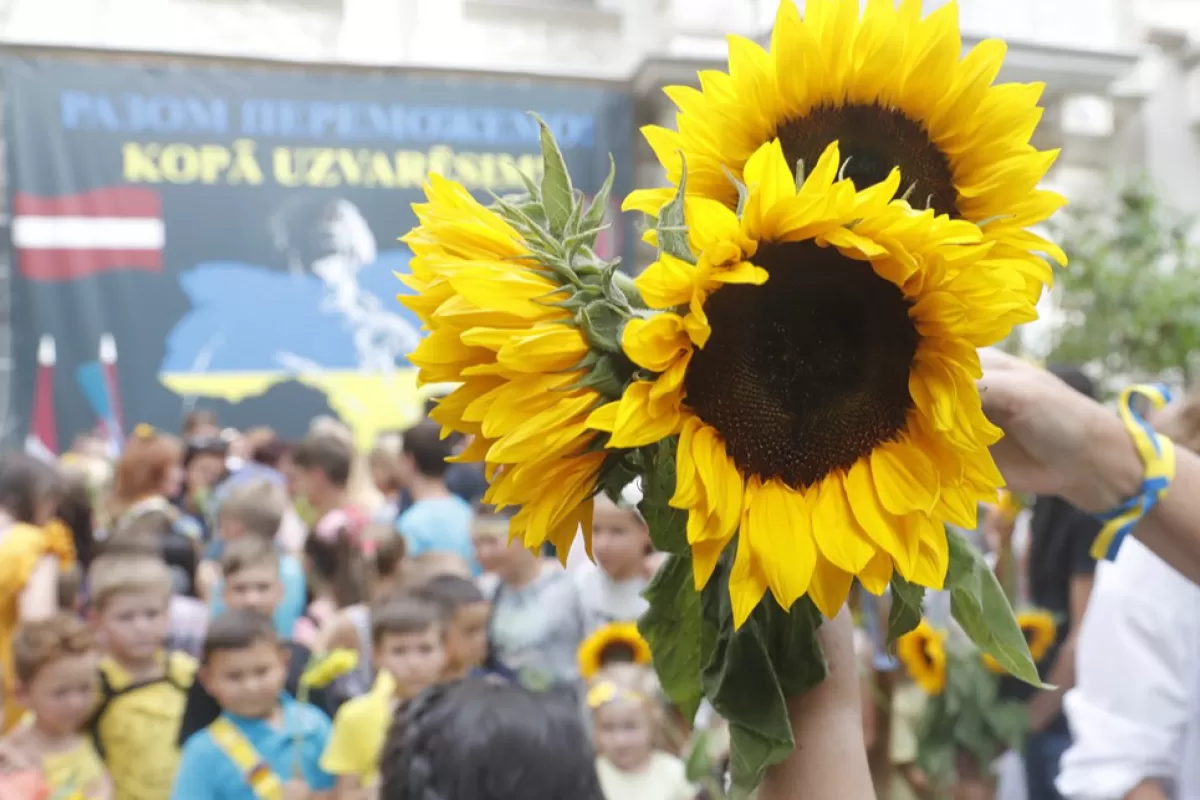
Latvia is a staunch supporter of Ukraine. However, around one quarter of its population is made up of Russian ethnics, and the number of those speaking Russian as a first language is higher. The war in Ukraine brought into focus the loyalties of that population – do they support Riga’s policy and Ukraine, or Russia’s aggression and president Vladimir Putin? No one seems to know the answer to that.
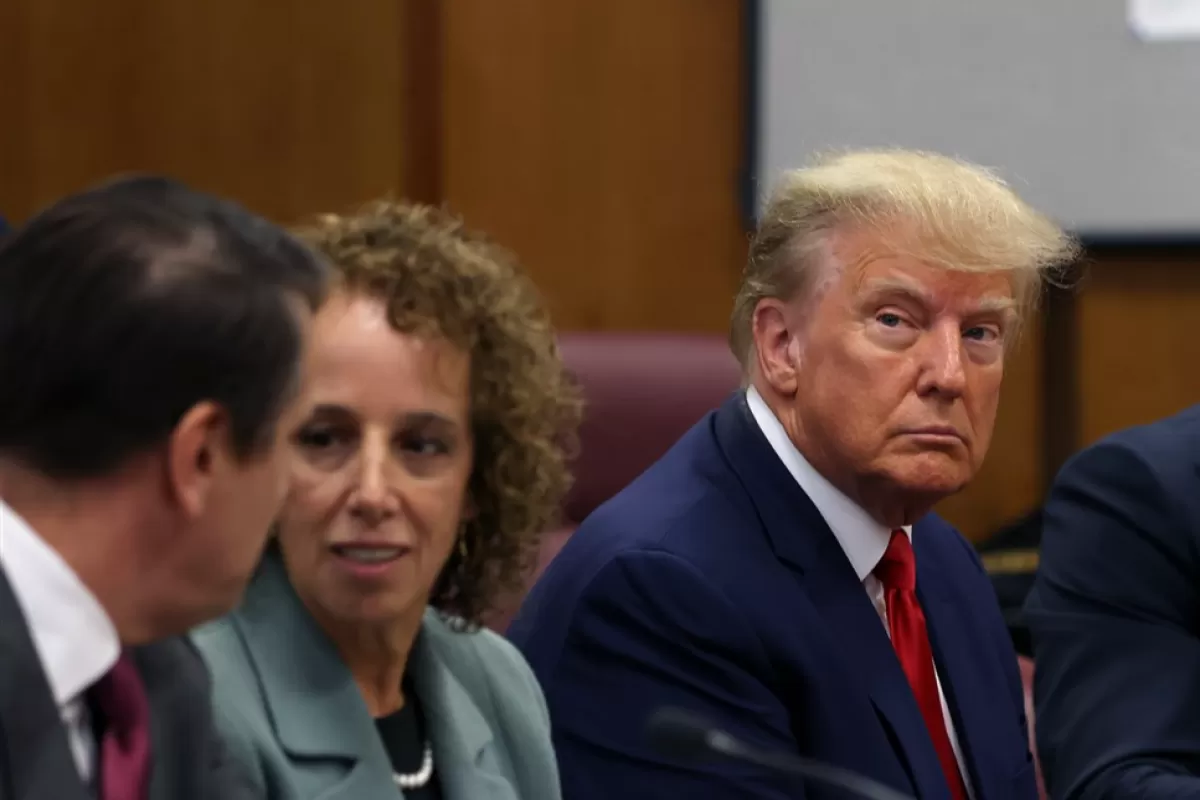
Donald Trump is the first former US president to be brought to court in a criminal investigation. How will the trial (and others that might follow) affect Trump’s political standing, given the ex-president has already announced his White House bid in 2024?

Carbon emissions, pollution and overfishing are putting the world's oceans at risk. They play a key role in maintaining the ecological balance of the Earth, but also in the global economy. Urgent measures to protect them and a better understanding of the phenomena that affect them are much needed.
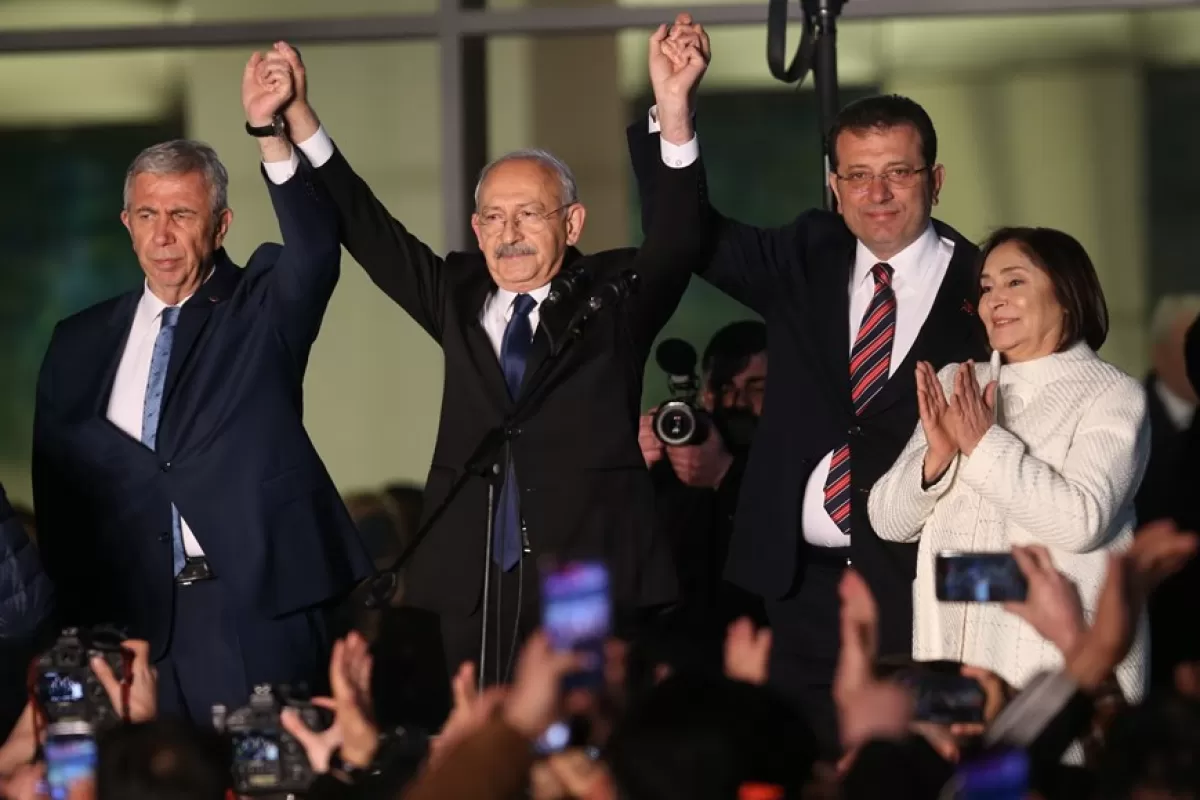
Recep Tayyip Erdoğan and his party, AKP, will face the most difficult elections in the last twenty years. The economic crisis, the February 6 earthquake, the opposition coalition and the possible mobilization of the Kurds diminish Erdoğan's chances of staying in power. The end of the Erdoğan era does not mean that Turkey will become a liberal democracy – but there is a chance that it will
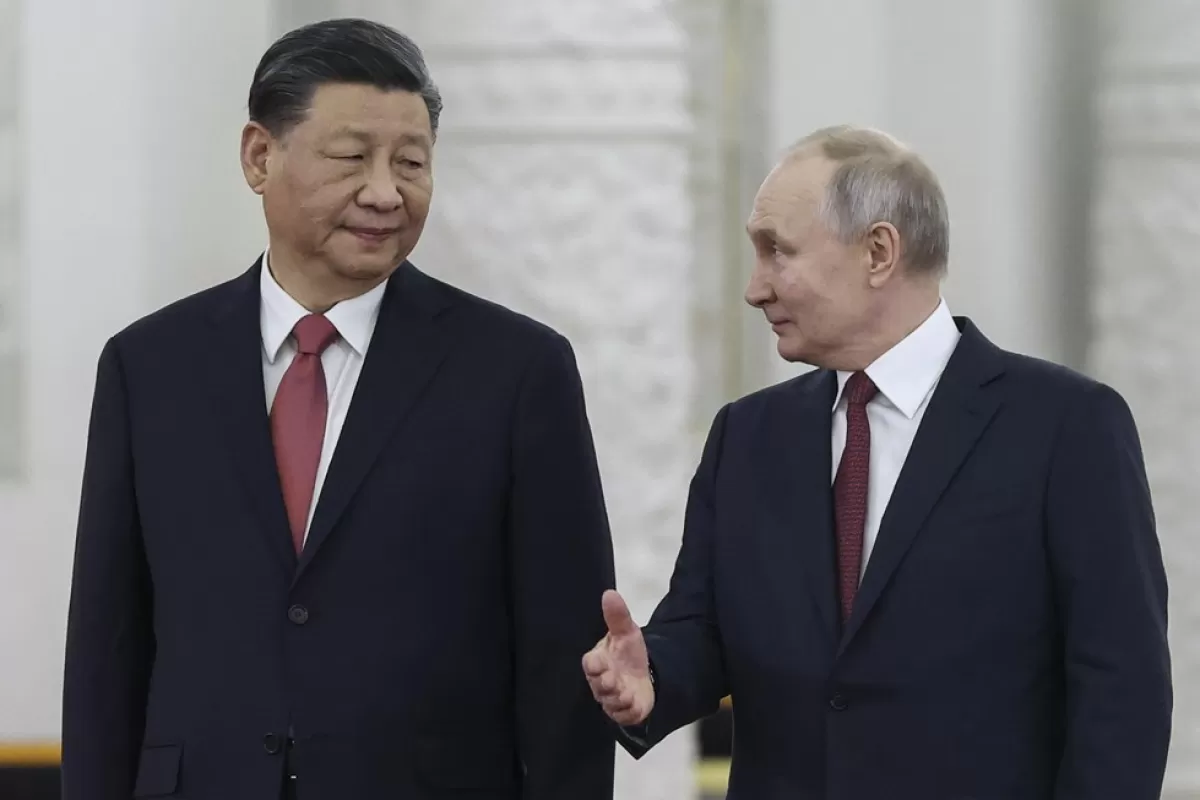
Xi Jinping visited “dear friend” Vladimir Putin in Moscow to promote his peace plan and sign deals that will take trade to $200 billion. For Putin, increasingly isolated internationally, the visit was a lifeline. For Xi, an opportunity to promote China's interests and his own image.

Georgia’s ruling Georgian Dream was recently forced to drop a Russian-inspired bill. The party seems determined to return to this project, which may compromise Georgia's European path, but is promoted by Russian propaganda. The problem for the Georgian Dream - and for Moscow - is that most of the population opts for Euro-Atlantic integration.

The war was launched to neutralize Iraq’s arsenal of weapons of mass destruction (WMDs) – which did not exist. It also sought to replace Saddam Hussein’s neo-Stalinist regime with a liberal democracy close to the United States. After twenty years and a series of serious mistakes, instead of a liberal democracy, Iraq got a rather authoritarian regime, despite the existence of political pluralism and free elections. The number one power that determines Baghdad’s policy-making is Iran, America’s biggest adversary in the region.
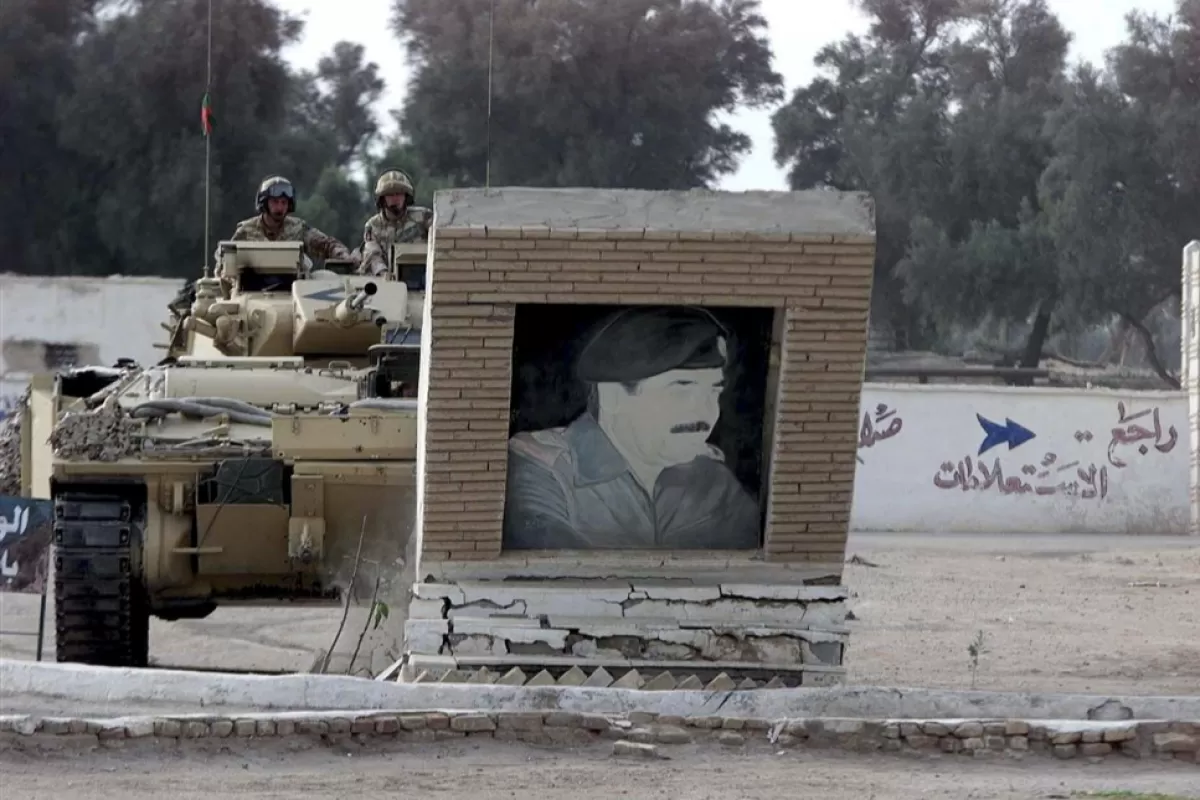
The war in Iraq started with a campaign against Saddam Hussein’s army and ended with the defeat of the Islamic State. In-between these milestones, the Sunnis and Shiites staged insurrections and started a civil war. Thousands of suicide bomb attacks were carried out during this period while battles left whole cities destroyed. Veridica presents the milestones of one of the most devastating conflicts in the Middle East.

Putin’s Russia is a conglomerate of toxic residue carried over from successive historical eras. From Russia’s imperial past, Russia inherited the fixation of becoming a global power. From the Soviet era, Putin sought to capitalize on the symbolic remnants of the superpower status, to make Russians believe this chapter in Russia’s history represented the pinnacle of their political existence. He added to this legacy the cynical and cunning attitudes specific to the criminal underworld, and he wrapped them in the illusion of power and wealth, to conceal the ruin and rot of widespread corruption.

The parliamentary elections held in Estonia showed that in an extremely unstable geopolitical situation in Europe, with the war in Ukraine going on for more than a year, the population is aware of the risks and is ready to rally around those political forces that rely on the European Union and NATO. At the same time, there were also some unpleasant discoveries for Estonian society.

Ever since the collapse of the Soviet Union, the Baltic countries have been skeptical about Russia’s true aims. It was a view that proved to be more realistic than those held by many in the West, who thought that Russia can be a genuine partner of the Western liberal democracies and part of a stable international system.

The linguistic and identity issue has persisted throughout the Republic of Moldova’s 30 years of independence. The most important claim during the national liberation movement of 1988-91 – the recognition of the Romanian language as the official language and the fact that Moldovans are part of the Romanian people – was hijacked in the following years by politicians from the old communist nomenclature, who also succeeded to include in the Constitution the phrase “the Moldovan language” as the state language.

The February 6 quake could deal a heavy blow to the administration led by Recep Tayyip Erdoğan, commonly seen as the man responsible for the disregard of building safety codes. The Turkish president came under heavy criticism for the authorities’ sluggish response to this disaster, which affected primarily the Kurds and the Alevi. The quake might equally exert a heavy toll on Turkey’s foreign policy, considering that Ankara’s traditional enemies have shown solidarity with the Turkish people.

Russia launched its “special military operation” in the early hours of February 24. The scale and direction of the Russian attack show that Moscow was planning a blietzkrieg that would end with the beheading of the Ukrainian leadership and at least the seizing of the entire Black Sea coast to open the way to Transnistria. However, the Ukrainian resistance overturned Moscow's plans, and the conflict became a long-lasting one, in which both camps have scored successes, but also failures. Veridica presents 10 of the main moments of this war.

Formally, Tbilisi maintains its course towards integration into Euro-Atlantic structures, but the movement towards the West has been on inertia lately, while Moscow's influence is only growing. The ruling party, founded by oligarch Bidzina Ivanishvili, increasingly links national interests with his personal interests, be it political or business related. At a decisive moment for Georgia's future, such a policy may prove fatal.
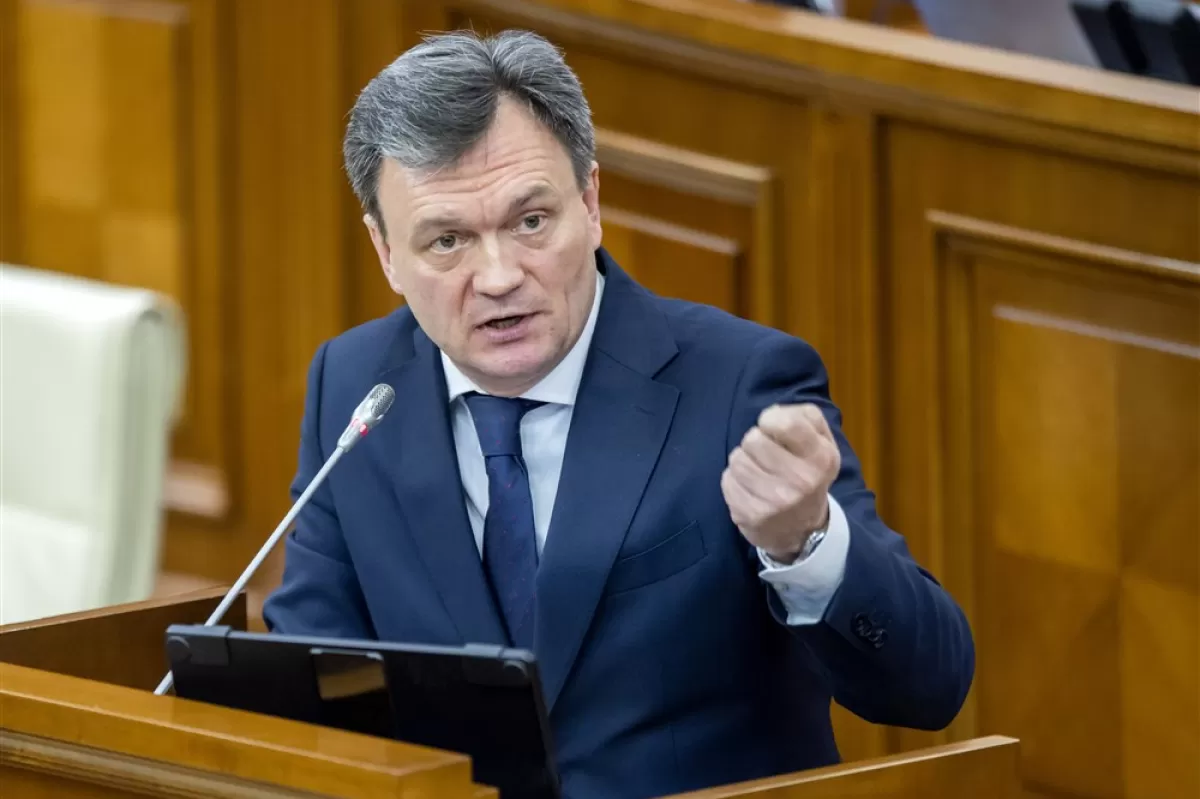
Voted by Parliament less than a week after the resignation of the Gavrilita Government, the Recean cabinet came up with a government program that focuses on security, economic development and the European integration of the Republic of Moldova. The document does not make any reference to the relations with Russia, although it is clear that Russia will continue to influence, through its people, the political processes in Chisinau and has other important levers, primarily Transnistria and the energy weapon.

The earthquake in Turkey was caused by the “the world’s great powers” - i.e. Westerners - to punish the country's president, Recep Tayip Erdoğan, Senator Diana Sosoaca believes. She presented her theory on the very rostrum of the Senate, in a statement stuffed with conspiracy theories, fake history, narratives about the war in Ukraine reminiscent of Russian propaganda and a call to battle with references to the Old Testament.

According to the Moldovan president, the Russian plan involves para-military units of foreign fighters, in civilian clothes, which would have attacked state institutions and taken hostages, the actions being masked by protests of the pro-Russian opposition.

Estonia is gearing up for general elections, which are scheduled in March. This year, they will come against the backdrop of Russia’s invasion of Ukraine and the problems brought by the war throughout the region. Thus, security and energy are bound to be the main topics of the electoral campaign. Also because of the war, it is highly unlikely that any significant party will raise the questions of improving relations with Moscow as a way of courting Estonia’s Russian minority.

Thousands of buildings collapsed in Turkey during the February 6 earthquake. This is not the first tragedy of this magnitude in the history of this country. While other countries in areas with a much higher degree of seismic activity have understood the importance of reducing seismic risk through strict regulations in the construction sector, Turkey seems to be always taken by surprise.
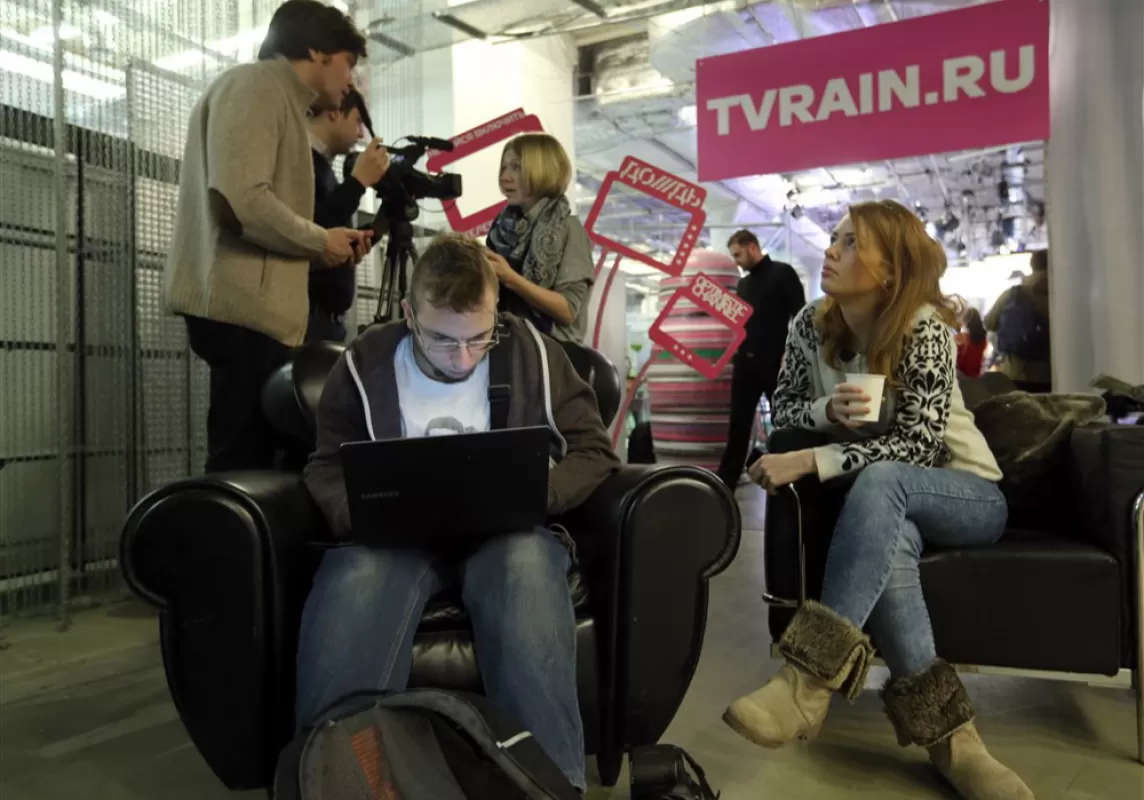
As the Kremlin made it virtually impossible for independent media to work in Russia, many outlets and journalists took refuge abroad. The Baltics offered such a safe haven including to the famous TV Rain, which moved its main operations to Latvia. After broadcasting for several months, TV Rain’s license was revoked for not complying with the Latvian rules and showing sympathy for the Russian troops fighting in Ukraine. However, Riga’s decision, while considered too harsh by some, did not lead to an exodus of Russian independent media from the Baltics.

According to a document of the Russian Federal Guard Service, the agency is prepared to defend Vladimir Putin including with the help of hypnotists and priests. The existence of a parapsychological defence plan may seem bizarre, but a penchant for mysticism and the paranormal is not uncommon in Russia. Over time, the elites and even the state have turned to unconventional helpers, such as Rasputin, KGB parapsychologists or the FSB general who said he can read minds.
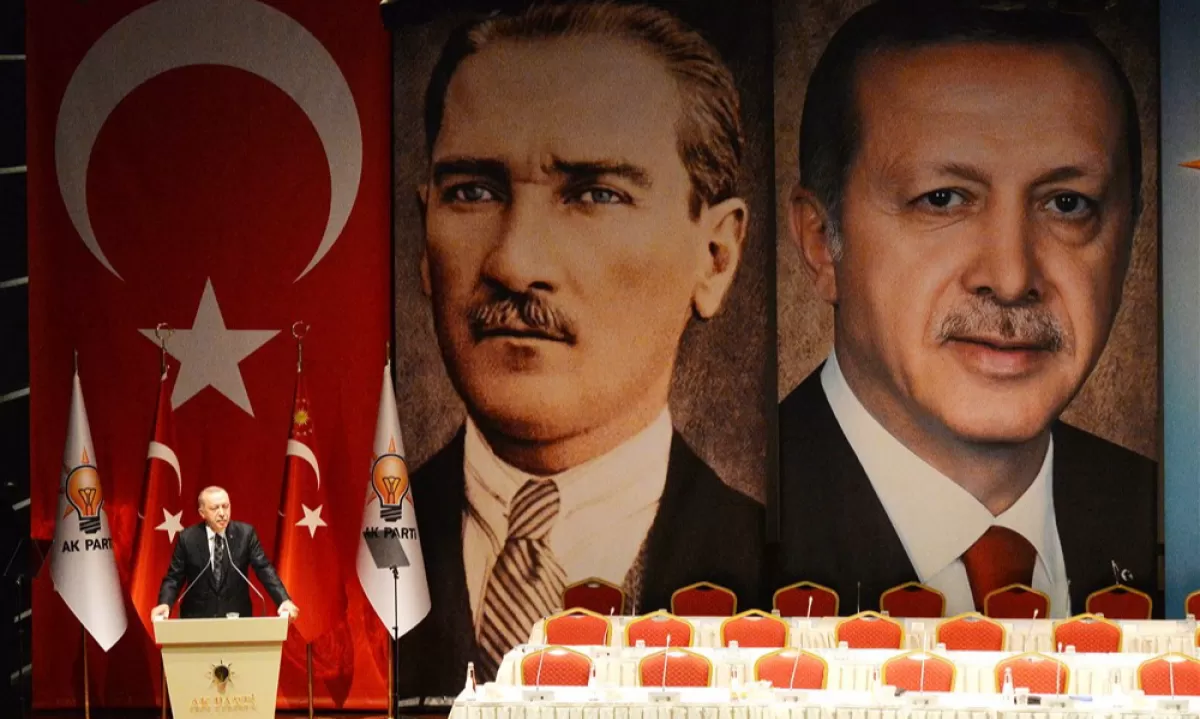
Recep Tayyip Erdoğan is trying to consolidate his regime by jockeying a third term at the helm of the country. The general elections this spring will take place amidst a severe economic crisis. To increase their odds, the Islamists have resorted to electoral handouts and sabotaging the opposition. The elections take place in a very special year: 2023 marks a century since Mustaka Kemal Atatürk proclaimed the republic, a republic which today is facing a full-blown crisis and is drifting further away from the vision of its founder.

The withdrawal by Lithuania of the License of the Russian television station Rain TV, brings to attention an older issue regarding the liberal Russian opposition: is it willing to abandon the imperialism at the core of the various autocrat Russian regimes? Lithuanian journalist Nikadem Szczygaowski writes that from the Tsarist era reformists to contestants of the Soviet system as Mihail Bulgakov to Putin opponents like Alexei Navalnîi, the support for the empire - described, euphemistically, as the "Russian world" - seems to remain the same.

Over the past year, the health of the former Georgian President Mikheil Saakashvili, who is serving a six-year prison sentence, has been a major topic of political debate both inside and outside of Georgia. The opposition and Saakashvili's lawyers say he should be transferred to a European clinic to be treated for mental illness, personality deterioration and severe depression. The government claims that the former president is faking it. Finally, signals are coming from Brussels that if Mikheil Saakashvili dies in detention, Georgia's European future could be jeopardized.
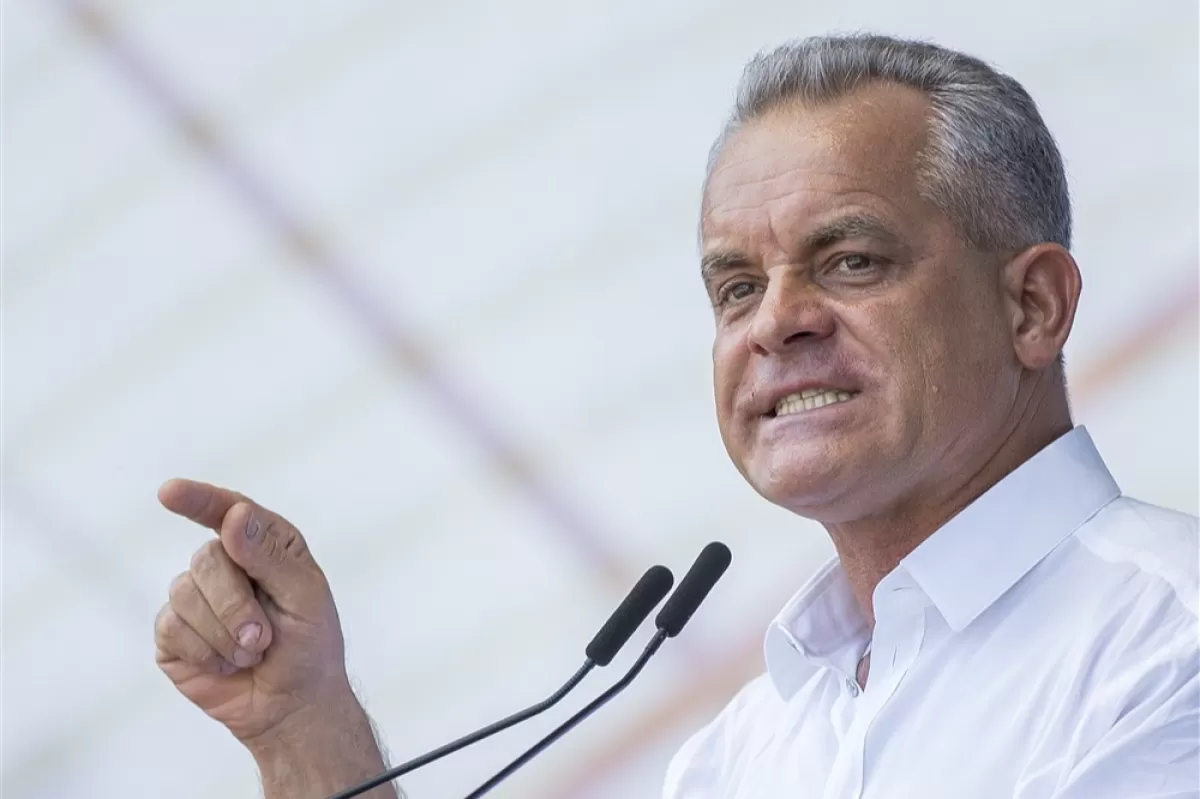
When it came to power, the pro-European government promised to reform the judiciary and bring to justice the oligarchs who embezzled state funds and are now hiding abroad. Vladimir Plahotniuc, Ilan Shor and fugitives from “the London group” seem to continue to enjoy protection from the system they helped build and are supporting efforts to oust the current pro-European administration. On the other hand, the authorities also rely on the support of the country’s Western partners, who seem to have understood that oligarchs are pressing for closer relations with the Russian Federation.

Estonian city Narva and Russia’s Ivangorod are connected by a Friendship Bridge, a name that sounds quite ironic nowadays when many Ukrainian refugees use the bridge to make their way to Europe. They had to go East, then North, as their route West was blocked by the fighting. A network of Russian and Estonian volunteers has been helping these refugees. While some continue towards other European countries, many decided to stay in the small Baltic country, which is starting to feel overwhelmed.